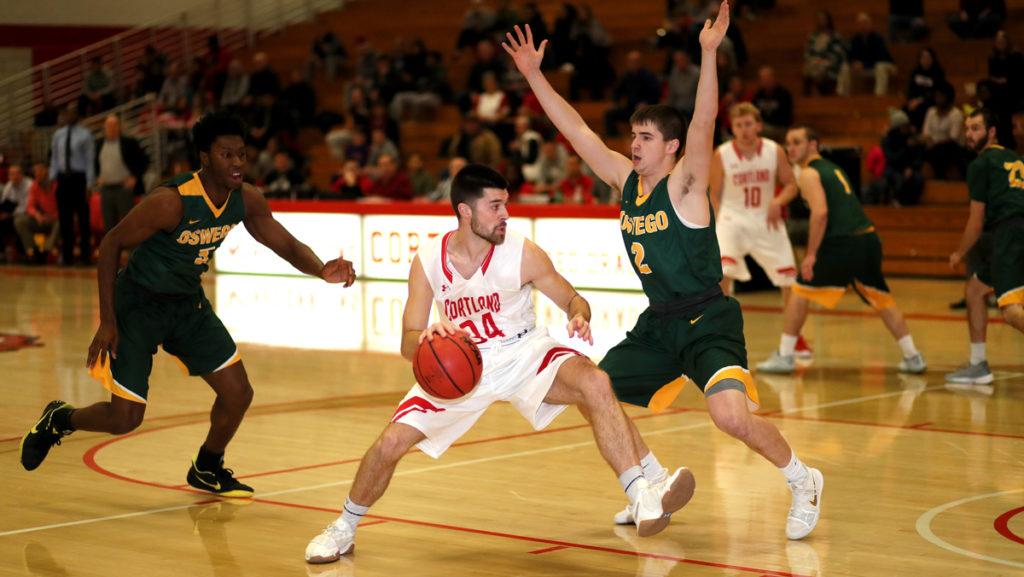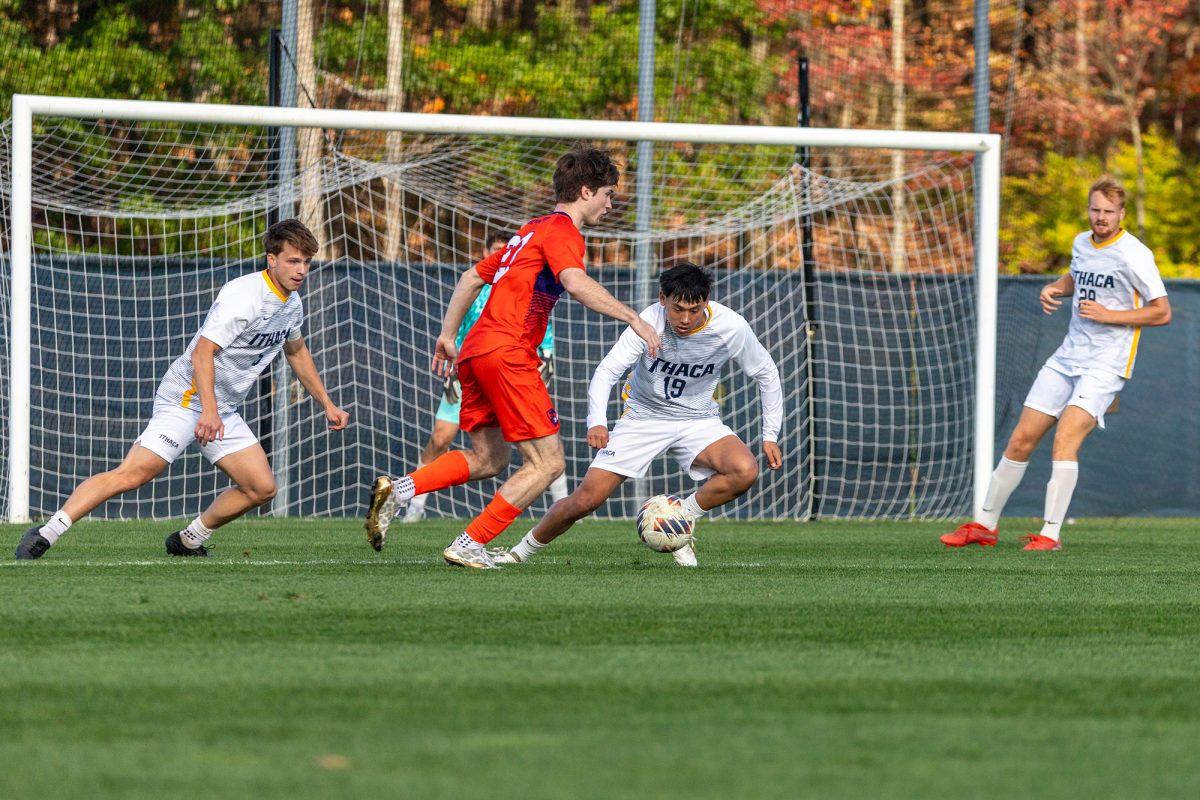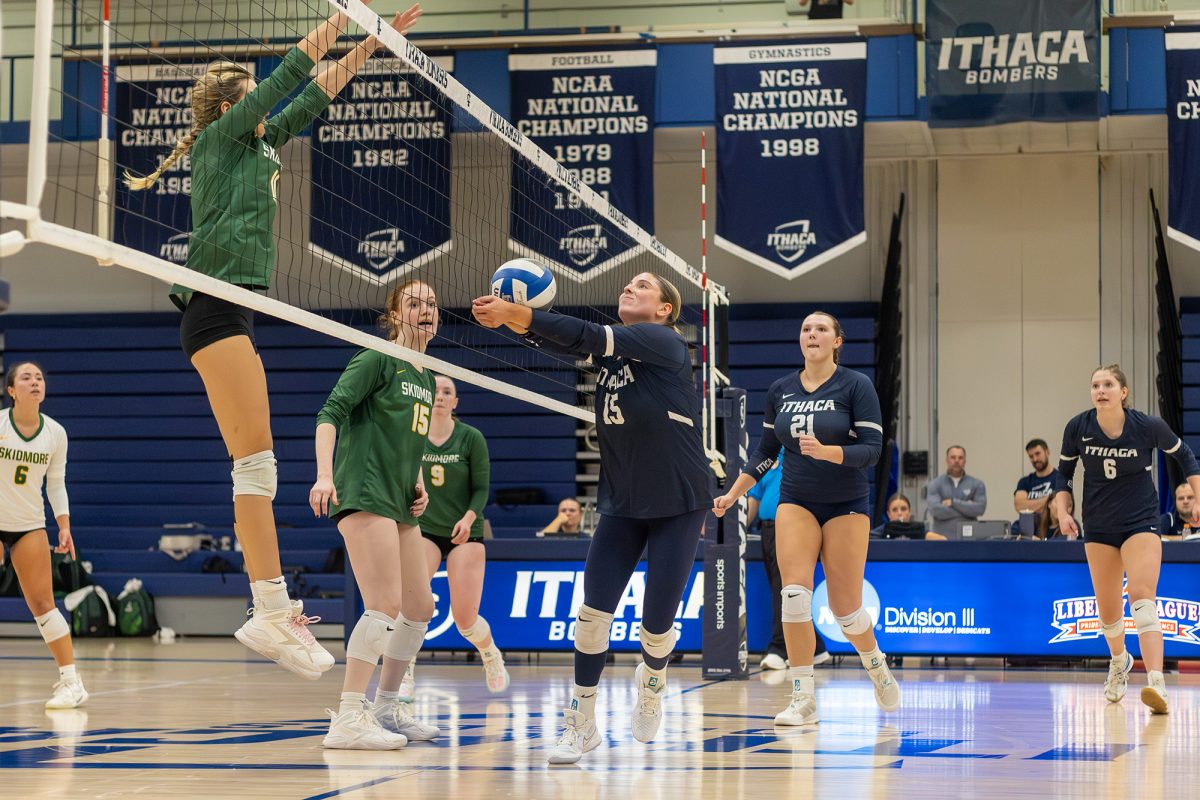The SUNY Athletic Conference (SUNYAC) announced in October that it will not be competing in winter sports this upcoming season.
While Ithaca College is not a member institution because it competes in the Liberty League, Bombers compete against SUNYAC schools in nonconference play in various sports, including SUNY Cortland. The Liberty League and Ithaca College have not yet made an official decision regarding winter sports but will be doing so in November. The Bombers that will be the most affected by the SUNYAC decision are the college’s wrestling and gymnastic teams, which are not in the Liberty League.
The wrestling team competes in the Empire Collegiate Wrestling Conference (ECWC), which includes SUNYAC schools Cortland, The College at Brockport, SUNY Oswego and SUNY Oneonta. There are only two other schools in the ECWC besides the Bombers left now: Alfred State and Rochester Institute of Technology, which is also in the Liberty League.
The Ithaca College gymnastics team competes in the National Collegiate Gymnastics Association East Region. SUNYAC schools Cortland and Brockport will affect regional competition. Other schools in the region include Springfield College, Rhode Island College and Ursinus College.
While other teams at Ithaca College do play nonconference games against schools in the SUNYAC, they will be less impacted by the decision because the Liberty League will most likely be competing in conference play only this winter, said Susan Bassett, associate vice president and director of the Office of Intercollegiate Athletics. This means they will only be playing against other member institutions. However, Bassett also said there is a possibility that every team could play two teams outside the Liberty League if they follow similar return-to-play plans.
Other institutions in the SUNYAC include Buffalo State, SUNY Fredonia, SUNY Geneseo, SUNY New Paltz, SUNY Plattsburgh and SUNY Potsdam. Erik Bitterbaum, chair of the SUNYAC presidents, stated in the announcement that the decision was made with everyone in collegiate sports’ health in mind.
“This was not an easy decision and I empathize with all of our student-athletes across the SUNYAC,” Bitterbaum said. “However, despite our best efforts to plan for a winter season, our priority must be the health and safety of everyone involved with intercollegiate athletics and our campuses as a whole.”
The SUNYAC announcement also stated that a decision about spring athletics will be made at a later date.














